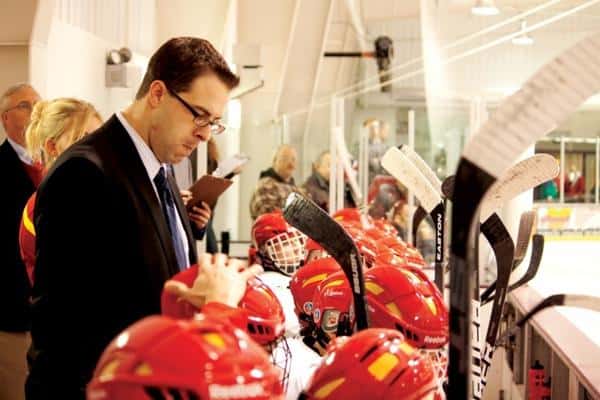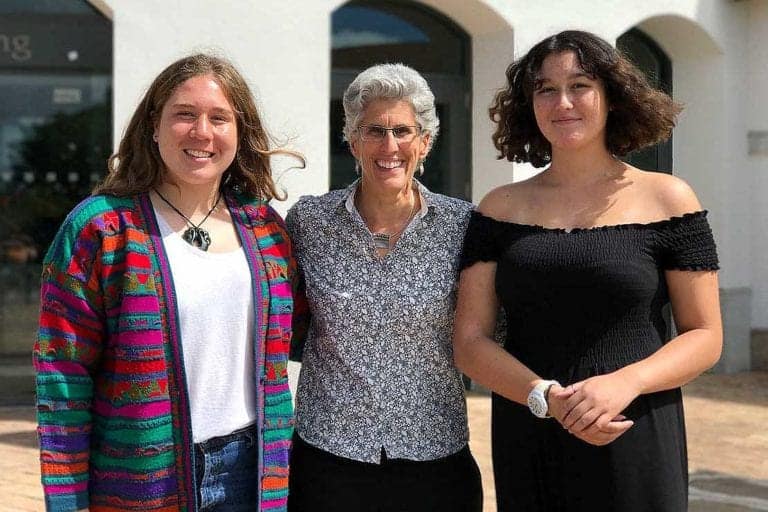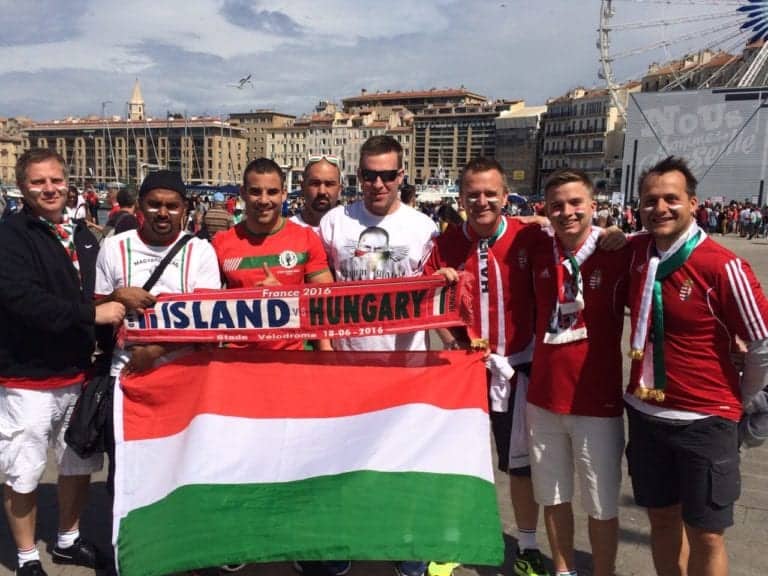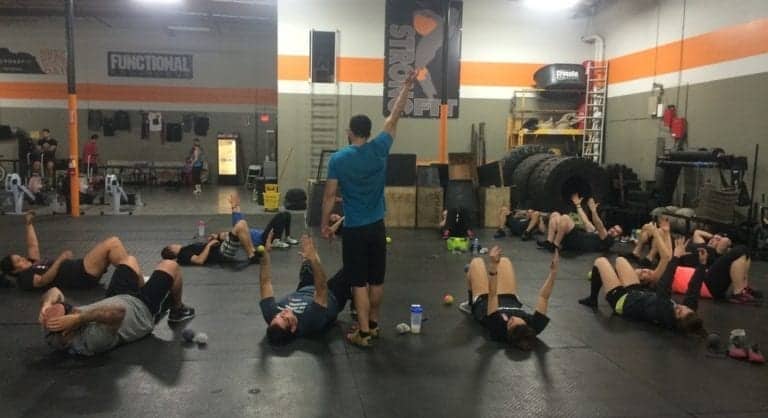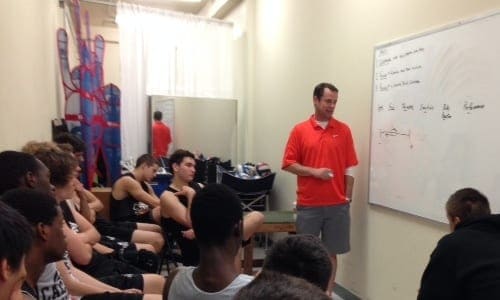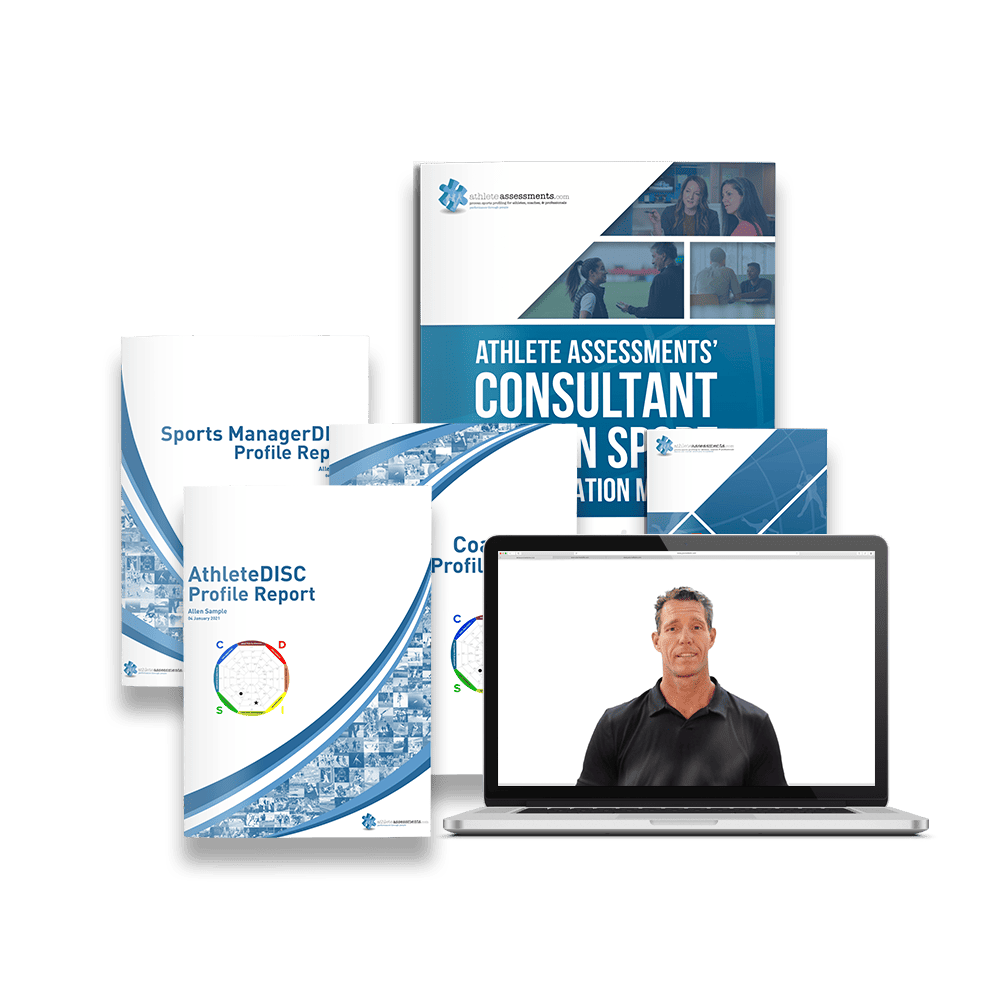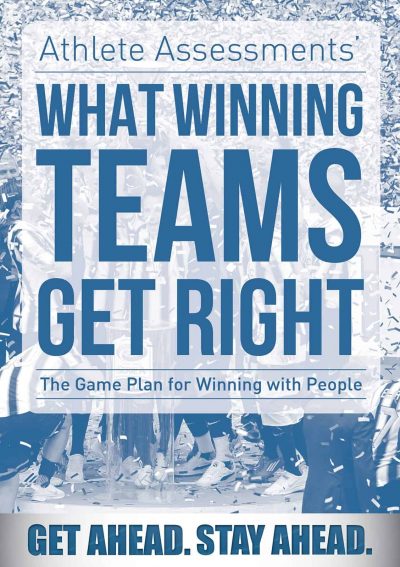Valuable insights from Mental Performance Consultant, Kyle McDonald on stress and pressure resilience and its impact on elite performance
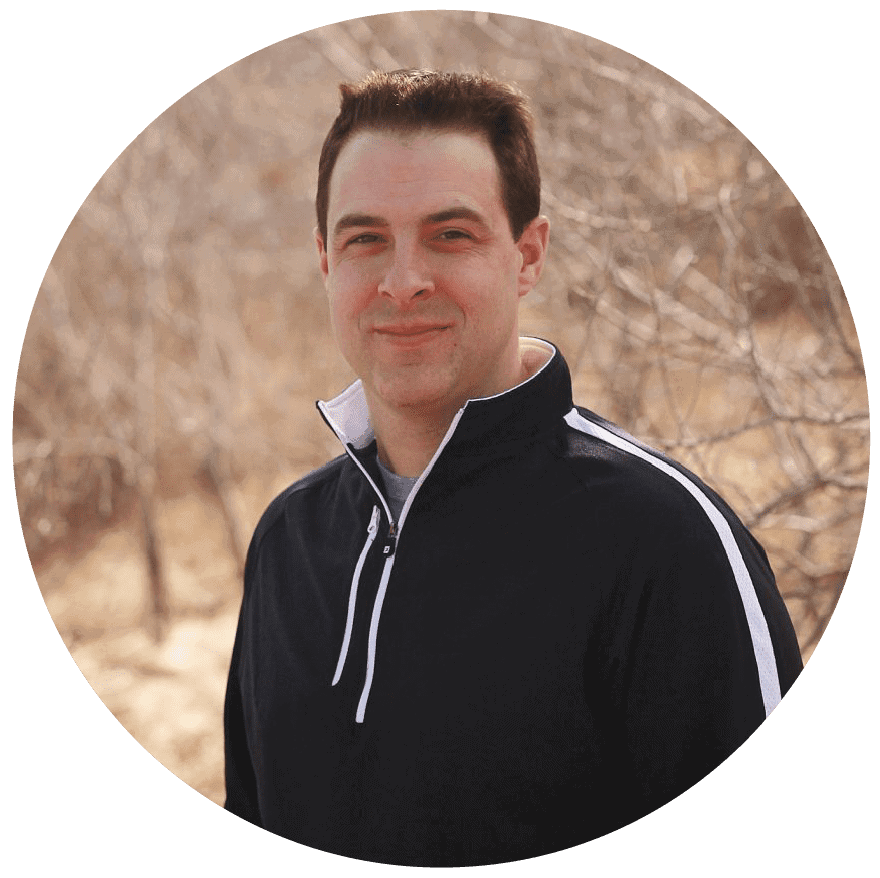 Why would you leave a gap in your game preparation, asks Kyle McDonald, Mental Performance Consultant. He questions why some athletes and coaches have a plan for physical and technical development, but not for mental growth and mastery. Kyle prepares some of Canada’s best and most competitive ice hockey athletes and teams for their professional, Olympic and Paralympic campaigns. In this article he reveals the impact of stress and pressure resilience on performance and underscores it as the #1 differentiator between elite athletes. He details the essential precursor to mental skills acquisition, the link between hardiness and high-performance and the ideal age to start mental skills training.
Why would you leave a gap in your game preparation, asks Kyle McDonald, Mental Performance Consultant. He questions why some athletes and coaches have a plan for physical and technical development, but not for mental growth and mastery. Kyle prepares some of Canada’s best and most competitive ice hockey athletes and teams for their professional, Olympic and Paralympic campaigns. In this article he reveals the impact of stress and pressure resilience on performance and underscores it as the #1 differentiator between elite athletes. He details the essential precursor to mental skills acquisition, the link between hardiness and high-performance and the ideal age to start mental skills training.
On a daily basis, Kyle works with some of the world’s best athletes, competitors who have and continued to overcome enormous obstacles to compete at the elite level. So we took the opportunity to ask him exactly what puts some athletes on the podium while others just watch on and wait for another shot next year.
He says, “what differentiates an elite athlete is their willingness to have a conversation and show some vulnerability when it comes to their perception of stress and pressure. The elite athlete holds the mindset that it is not a particular technical skill that will separate them (such as their free throw or wrist shot), but instead it’s how they see themselves, it’s their internal perceptions, dialogue, and breathing. In general, it’s their development of preparation and performance skills.”
He adds, “when we look at elite performance, the technical, tactical, and conditioning aspects are so intact among the best individual athletes and teams. It is only a thin line that separates the great performers from the elite, therefore, I believe the mental skills developed for individual and group effectiveness are the deal breakers at the top. Being human, our perceptions of success and stress should be discussed and the mental skills pillar of development gives us that ability. You would never meet an elite athlete who didn’t have a tactical skills development plan or who didn’t have nutrition and conditioning plan – so why would you allow a gap by not having a mental skills plan?”
Considering that those mental skills are so pivotal to peak performance Kyle advocates starting the learning process early, he says, “I used to think that mid-teens was the right time, however I have had an increase in conversations with families of athletes who are around 10-12 years of age. I think sport can be difficult, especially in this day and age, so the sooner we can start discussing and educating individuals on areas like attitude as a choice, motivation as a choice, and share stories on how athletes work through difficult times, the better. Mental skills are just that – a skill and need to be worked on daily.”
Mental skills can certainly help athletes perform at peak levels but change is always part of that process and it’s often an uncomfortable part of the process. We asked Kyle which attributes could help an athlete cope with change, he says, “I think commitment and willingness to embrace adversity. Games are never perfect and nor are we as individuals. Stress and pressure can take a toll and can even bring us to some pretty low points, but commitment and being self-aware in our own process is crucial. There is always resistance in change, but an ability to persist in challenges is such a great aspect.”
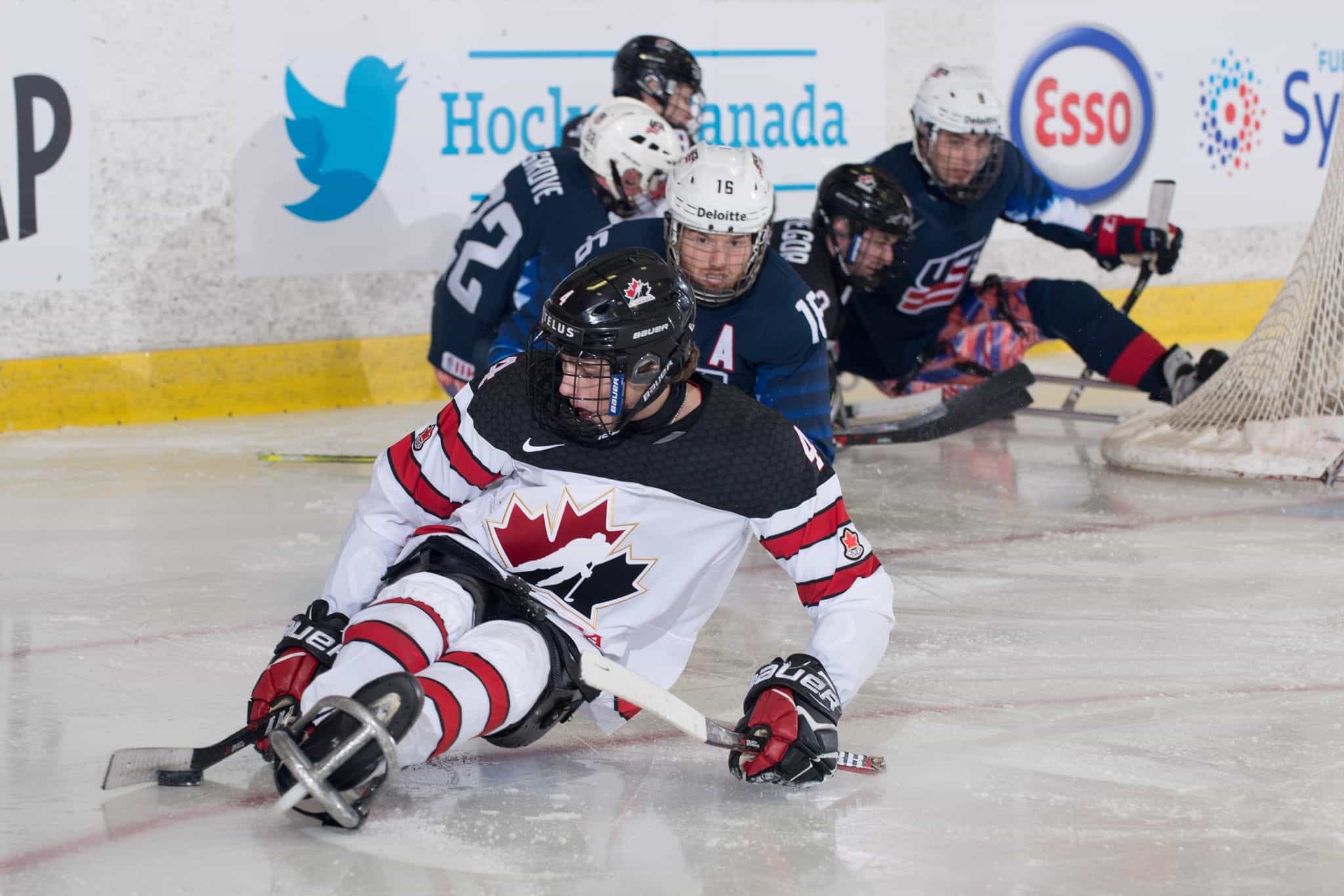
London, ON – Dec 3 2018 – Canada vs. USA during Game 2 of the 2018 Canadian Tire Para Hockey Cup at the Western Fair Sports Centre in London, Ontario, Canada (Photo: Matthew Murnaghan/Hockey Canada Images)[/caption
This understanding of mental skills as an element of performance with as much power to catalyze personal bests and contribute to a turn-around or a win/loss record is often missed. Kyle talks about the misconception that athletes only seek help for mental skills if there’s a problem. He says, “mental skills are just like technical skills and there should be a conscious effort on developing it on a daily basis. It is okay to speak with a mental performance consultant. It is not a sign of weakness or sickness but instead, it is a sign of personal mental mastery.”
Continually working with athletes to build their mental performance, Kyle has come to understand there’s a precursor to the development of mental skills. As an Athlete Assessments Consultant client, he uses the AthleteDISC and CoachDISC Profiles with all of the athletes and coaches he works with. Evaluating the DISC Profiles and Athlete Assessments’ support, he says, “the most valuable aspect of the Athlete Assessments Profiles is that it helps open the line of communication with athletes and organizations and also provides a deep evaluation to educate the athlete on their behavior preferences. Before we acquire the (mental) skills, education in self-awareness is so crucial and Athlete Assessments starts that process.”
He adds, “the AthleteDISC Profiles have helped me paint a complete picture of my athletes. The DISC Profiles starts creating an identity for us to build upon.”
In addition to the athlete’s personal mental skills, Kyle is a big believer in the power of the coach to shape an athlete’s mental landscape. Consequently, when he was investigating the links between hardiness and high-performance for his MSc in sport psychology, he began with the coach.
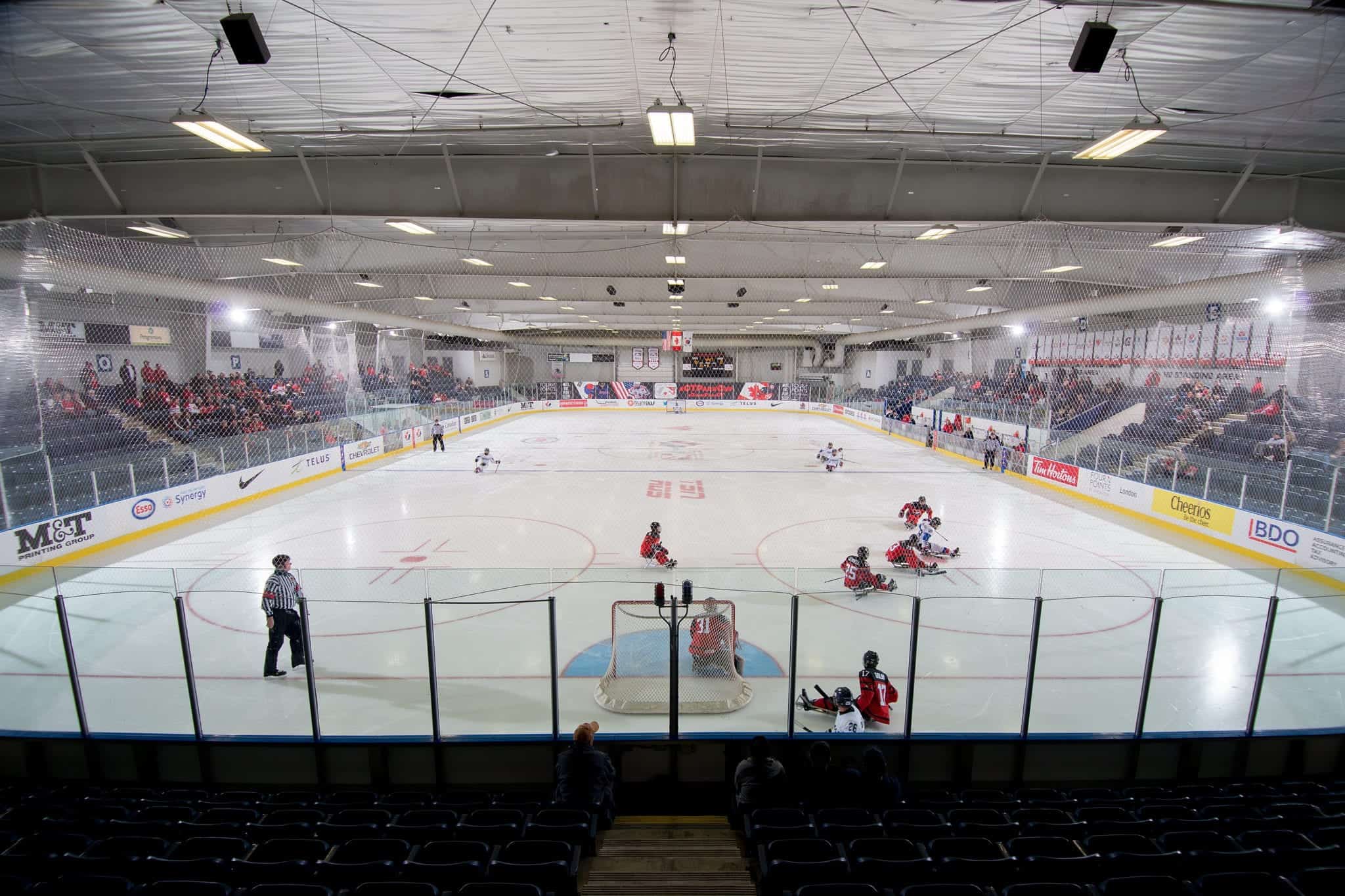
London, ON – Dec 2 2018 – 2018 Canadian Tire Para Hockey Cup at the Western Fair Sports Centre in London, Ontario, Canada (Photo: Matthew Murnaghan/Hockey Canada Images)[/caption]
Of his research and the link between hardiness and high-performance he says, “I think that in general our society really likes outcomes and labeling. Mental toughness is a label and I thought hardiness brought to the forefront some tangible aspects that are discussed in relation to being stress resistant. The concepts of challenges, commitment, and control functioning in stress resilience are crucial in environments. My research began with professional ice hockey coaches and how they perceived the elements of hardiness. I started with coaches because I felt they are the ones who shape environments for athletes. The relation to high-performance is that if a coach can exhibit hardiness they could influence their athletes in this element.“
Kyle understands that success is built on replicable process. Much of his work, leaving content aside, is based on process. Incidentally, it’s also what he loves most about his job, he says, “I like winning just as much as the next person, but I also believe each of us have a process scorecard we should pay particular attention to. This process is what gives us meaning, purpose, and passion for our endeavors and I absolutely love being part of many high performing individuals’ journeys on their process. Seeing clients perform and being part of their team on a daily basis as they chase their unique goals, is pretty special. To have a front row seat to performance every day. I’m pretty lucky.”
As a nod to process, Kyle explains another incredibly rewarding aspect of building the mental pillar of an athlete’s performance. He says, “usually after a relationship is built, we find that piece of the puzzle that produces some outcomes. Some athletes take a few months, others a year, but we find it and it is quite a journey.”
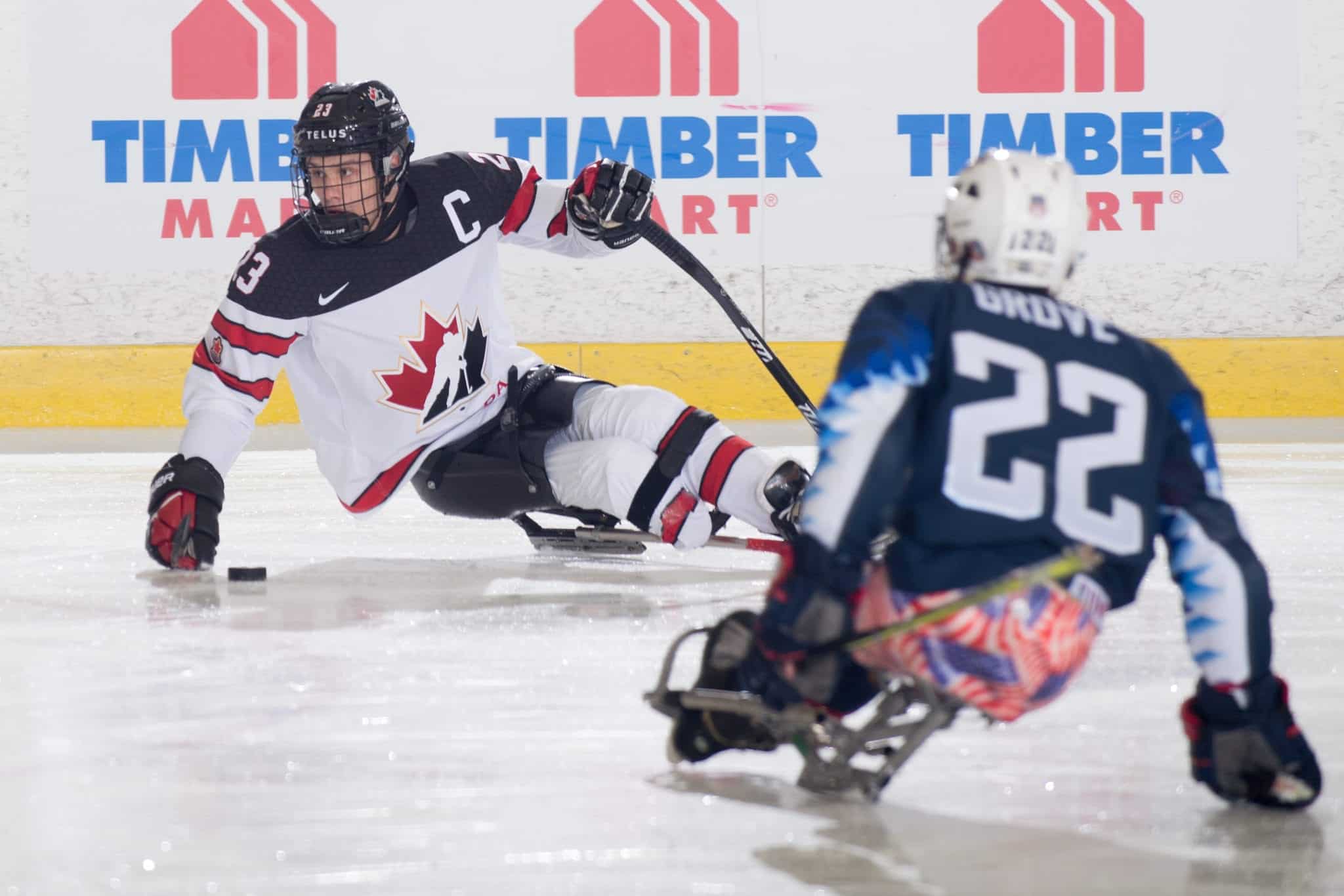
London, ON – Dec 3 2018 – Canada vs. USA during Game 2 of the 2018 Canadian Tire Para Hockey Cup at the Western Fair Sports Centre in London, Ontario, Canada (Photo: Matthew Murnaghan/Hockey Canada Images)[/caption]
For all the campaigns he’s been part of, we asked Kyle about his career highlight to date, he says, “there are so many of my athletes that I am proud of but one highlight that stands out is our silver medal at the World Para Ice Hockey Championships. I know that we all want gold but that process scorecard that I talked about earlier, there were many check marks on it. We just need to keep challenging ourselves.”
If, like us, you think Kyle does a phenomenal job, here’s the top 3 things that he thinks help him succeed in his work with clients. He says they are,
Being an active listener, who focuses on the athlete’s thinking and not just the issue or problem they’re bringing to the table
Building a relationship with each of my clients, which also includes the trust to have some difficult conversations
As cliché as it is – Having passion and commitment to better myself in my profession and have a willingness to always continue to learn
Kyle’s clients report significant performance improvements, but importantly they also report that he’s always there for them, he’s part of the team, whether it’s the pat on the back or the difficult conversation. He says, ”I hate the saying about not taking performance aspects personally; it is personal, because athletes care. Personal is human. Being able to have conversations that they may take personally is a trademark of a great relationship and I think the athletes I work with understand that. I think they would say that I helped create self-awareness in an effort to understand emotions and the effect they may have on performance.”
While we’re on the subject of difficult conversations, we asked Kyle if he were to give one piece of advice to a coach or athlete, what would it be? He replied, “there’s a quote by Herbert B. Swope – “I cannot give you the formula for success, but I can give you the formula for failure – which is: Try to please everybody.” I think it’s important for our athletes to look inward and find their path, not everyone is going to be happy all the time but let’s invest in aspects we can control and our inward feelings towards success and adversity.”
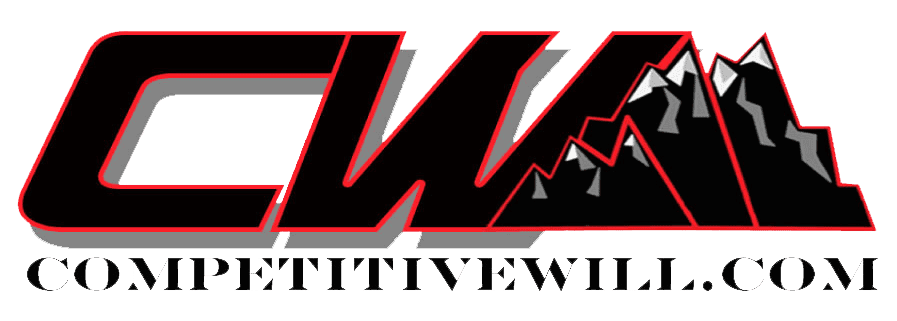 Kyle McDonald is the principal consultant and owner of Competitive Will Performance Consulting. Currently, he is a Ph.D. Candidate at University of Regina, his post-graduate studies focus on the advanced knowledge of sport psychology principles. He has an MSc Sport Psychology, University of Regina, Regina, Saskatchewan where his studies focused on the thesis of coaching and hardiness. He conducted research and analysis into the hardiness of elite coaches and how hardiness is the foundation of competitive environments.
Kyle McDonald is the principal consultant and owner of Competitive Will Performance Consulting. Currently, he is a Ph.D. Candidate at University of Regina, his post-graduate studies focus on the advanced knowledge of sport psychology principles. He has an MSc Sport Psychology, University of Regina, Regina, Saskatchewan where his studies focused on the thesis of coaching and hardiness. He conducted research and analysis into the hardiness of elite coaches and how hardiness is the foundation of competitive environments.
We covered so many interesting topics during this interview that we decided to include an extended Q&A with Kyle so you can learn more: Q&A From the Interview
Where to from here…
Are you a consultant looking to take your clients performance to the next level? Our consultant clients are based all over the world, so matter where you’re based, here’s some more information about our consultant’s packages.
As a top consultant, your clients rely on you being the best in your field, knowing the true determinants of success and having access to the tools that will make the most impact when it comes to improving performance. Athlete Assessments’ DISC Profiling is the tool you need to help your clients realize their potential.
At Athlete Assessments we’re here to provide you with excellence in service and to help you be your best. If there is anything we can do to be of service, don’t hesitate to contact us.
Suggested Articles
Get one day better every day. Have clarity on what that 'one day better' actually is each day. The daily accumulation of improvement increases the likelihood that you’ll reach your goals...
Leadership is not anchored to a nominal position or the domain of the select few within a team, according to Sarah Leberman, Professor of Leadership at Massey University, New Zealand. Also a Fulbright Scholar and the author of highly significant research on leadership, Leberman specialises in applying the knowledge surrounding leadership to the sport space and in particular women and girls.
Szombathely might be 15,588 kms from the Sunshine Coast, but it’s home to our newest consultant client, Szabolcs Hollósi. Experienced in brokering change, Szabolcs now has the tools and resources to partner with Hungarian sport on a national level, creating opportunities for athletes and coaches to take their performance to exciting new heights based on DISC Behavioral profiling.
When we think CrossFit, gyms and performance coaching, most people immediately think physical, but Mental and Fitness Performance Coach, Jared Cohen, is achieving exceptional results using mental strategies in combination with physical improvement.
One of the biggest misconceptions when it comes to Sport Psychology is that an athlete needs to have deficits in their mental game before they can seek support. But Sport Psychologist, Dr. Justin Anderson works with some of the world's best athletes who just want to “be better”.


